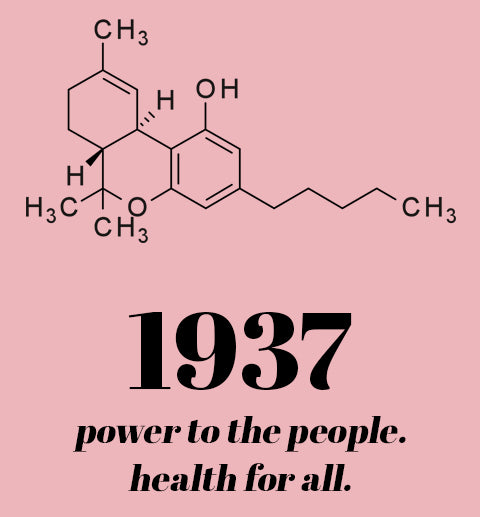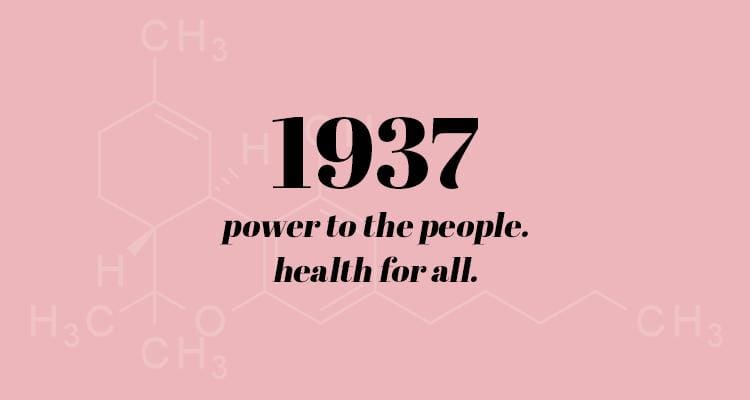5 Ways CBD Can Help You Manage Chronic Pain

Tired of daily aches, spasms, or soreness? Then you should consider using CBD to help manage your chronic pain.
We all experience pain at some point or another. Maybe it’s a sprained ankle, a headache, or even just muscle soreness from an intense workout. Chronic pain, however, is a completely different beast. The physical and mental toll that chronic pain causes can be debilitating and isolating. However, CBD could improve the quality of life for millions of chronic pain sufferers.
CBD isn’t a miracle cure, and we won’t pretend it is. But it can give you better access to the tools you need to help manage chronic pain. Read more to find out how!
What is Chronic Pain?
Acute pain occurs when you stub your toe or pull a muscle. This type of pain is a message from your nervous system saying that you're injured or have some other problem you need to take care of. Once the injury is healed or irritation removed, the acute pain should lessen. Chronic pain isn’t like that.
Sometimes chronic pain begins as acute pain that wasn’t treated properly. The National Pharmaceutical Council says, “The adverse consequences of undertreated pain are considerable. Poorly managed acute pain may cause serious medical complications, impair recovery from injury or procedures, and can progress to chronic pain. Undertreated chronic pain can impair an individual's ability to carry out daily activities and diminish quality of life.”
Chronic pain can last weeks, months, or even years after an injury or illness. Sometimes ongoing conditions like cancer or arthritis can cause chronic pain. But oftentimes there’s no definitive cause because the physiological mechanisms of pain are poorly understood.
Who Has Chronic Pain?
In 2016, the CDC found that roughly 1 in 5 adults in the U.S. suffers from chronic pain. That’s almost 50 million people, and 19.6 million of them experience debilitating pain that interferes with their day-to-day activities.
When chronic pain becomes debilitating, it takes a mental toll. According to WebMD, “About 25% of people with chronic pain will go on to have a condition called chronic pain syndrome (CPS).” This is when chronic pain starts to affect a person’s mental health and can include moderate to severe depression and anxiety.
Often, many chronic pain sufferers resort to prescription benzodiazepines or opioids to help manage both pain and the accompanying anxiety. While these prescriptions do provide relief for some, their high risk for dependency makes them problematic. They’re only meant to be taken for a short time, and when people stop taking them, the pain and anxiety can intensify.
Those with chronic pain desperately need tools and resources to help them complete day to day tasks. However, these resources aren’t available to everyone and they’re not always comprehensive enough to be successful.
So, how can CBD help?
What is CBD?
CBD (cannabidiol) is the non-psychoactive cannabinoid produced by the industrial hemp plant. It’s legal in all fifty states, and with the passing of the Farm Bill in 2018, it’s finally widely available.
But what does CBD do? Well, it’s less about what CBD does, and more about what it helps your body do. Specifically, your ECS (endocannabinoid system).
The Endocannabinoid System (ECS)
The ECS is a regulatory system that acts as a series of checks-and-balances for other bodily systems, promoting homeostasis throughout the body. When part of your body is thrown out of balance, the ECS sends naturally occurring endocannabinoids to re-balance things.
Say you’re stressed, for example, and it’s starting to affect the quality of your sleep. As a response, that extra stress probably made your adrenal glands produce more cortisol, but because your sleep isn’t great, your body isn’t able to reduce the cortisol levels once the stress is gone. This can lead to metabolism problems and weight gain.
This is where the ECS would kick on, and it might work in many different ways. It could balance your sleep cycle so you’re able to break down cortisol. Or it could help to lower your fight-or-flight response. There’s still research being done to discover all of the different mechanisms of the ECS, but suffice to say, it helps out in a ton of different ways.
But what about CBD?
CBD Boosts the Balancing Power of Your Endocannabinoid System
Structurally, CBD is very similar to the natural endocannabinoids your body is already producing. So when you take a CBD supplement, you’re essentially giving your ECS more tools with which to complete its many tasks!
Plus, because the ECS affects so many different parts of the body, CBD helps out in novel ways, too. It’s particularly good at helping people manage pain.
How Can CBD Help Those With Chronic Pain?
CBD Can Reduce Inflammation
Just like with acute pain, acute inflammation is a normal response during an injury, illness, or infection. Once the issue clears up, the inflammation should subside. Sometimes that’s not always the case though, and it ends up developing into chronic inflammation.
Chronic inflammation is almost always associated with chronic pain, so finding tools to help manage inflammation is the first step in managing chronic pain. Luckily, CBD is a powerful anti-inflammatory.
For severe pain and inflammation, we would recommend a sublingual CBD oil. It’s the most bioavailable of all the different options and will provide you with maximum relief.
CBD May Balance Neurotransmitters That Influence Pain Perception
A review published in Frontiers in Pharmacology says, “The mechanisms of the analgesic effect of cannabinoids include inhibition of the release of neurotransmitters and neuropeptides from presynaptic nerve endings, modulation of postsynaptic neuron excitability, activation of descending inhibitory pain pathways, and reduction of neural inflammation.”
This means different cannabinoids (like CBD) can reduce the messengers in your brain that communicate pain. This has applications for a wide variety of medical conditions, but for those with chronic pain, it means CBD could make day-to-day activities more manageable.
CBD Can Help Promote Better Sleep
This might not sound like it has anything to do with pain, but it does! When you’re constantly in pain, it can make it hard to fall into a deep, restful sleep. Plus, sleep deprivation can make chronic pain even worse. SPINE Health says, “Among those with chronic pain, an estimated 50% to 80% have ongoing sleep difficulties.”
One of the reasons many people use CBD is to help with sleep issues, but it helps people sleep through distinct mechanisms. Consumer Reports says that it could be due to the receptors CBD binds to, “At least one of those type of receptors is thought to affect the body’s sleep/wake cycle.”
The other reason CBD gives people better sleep is reduced pain and reduced anxiety. We already covered how it may help reduce pain, and it’s pretty obvious that when people are physically more comfortable they’re more likely to sleep better.
The same is true for anxiety. Racing thoughts and worries can keep anyone up at night. So, when your mind is calm and relaxed your more likely to fall into a relaxed sleep. In fact...
CBD Can Reduce Anxiety Associated with Chronic Pain
CBD can help with anxiety throughout the day. Many people with chronic pain don’t engage fully in activities because of fear and anxiety related to their condition. Sometimes it means being too anxious to run errands, to leave your house, or even get out of bed. Even if your anxiety isn’t that severe, CBD can help promote a more calm, relaxed mental state.
In one study it was discovered that CBD improves serotonin signals in the brain. Serotonin, a neurotransmitter, regulates emotions and is one of the neurotransmitters responsible for elevated moods and lowered anxiety. In some cases, CBD might be more effective than SSRIs at treating anxiety.
Plus, because of the many different ways you can use CBD, it’s easy to find the method that works best for you. Many people use oil or gummies in the morning, but decide to carry a CBD vape pen with them to use throughout the day as needed. For those with anxiety that pops up randomly throughout the day, this option is a total lifesaver.
CBD May Help People Avoid Using Prescription Opioids
For those with severe chronic pain, opioids can seem like the only solution. Prescription pain killers, however, while helpful in the short-term, often cause more problems than they solve.
We don’t want you to think that we don’t want people to use pain killers when necessary. Severe injuries often require short-term pain killers just to make day-to-day life bearable. However, the power of these drugs can’t be denied and between 1999 and 2015 more than 183,000 people died from opioid-related overdoses.
Making CBD a part of your routine may help reduce chronic pain to the point that opioids don’t need to become an option.
For those already using prescription opioids to manage chronic pain, consult with your doctor before reducing your opioid use and/or before adding CBD. The withdrawals from opioids can be debilitating, and discussing any changes with your doctor is non-negotiable.
Disclaimer
You may have guessed it already, but we strongly emphasize the need to discuss any of these changes with your doctor. This is particularly important for anyone who is already taking ANY prescriptions because CBD has been known to interact with certain drugs.
CBD & Chronic Pain
Chronic pain is difficult to understand until you’ve experienced it. Physical pain is only one aspect of it. The mental and emotional toll it can take often have long-lasting impacts. However, taking control is the first step to pain management, and CBD can help you get started.
If you, or someone you know, are using CBD to manage chronic pain, tell us about it in the comments below! It can be so isolating and knowing others are experiencing the same things can make all the difference to someone who might be suffering alone.

Hannah Walker is a mostly-retired University English instructor who spends her time freelance copywriting. When not doing that, she’s writing articles related to CBD, skincare, and/or media. With an MA in English-Creative Writing she’s probably working on a creative piece at this very moment. See more about Hannah’s work on her website or on Instagram.




